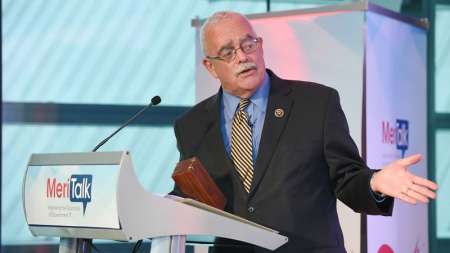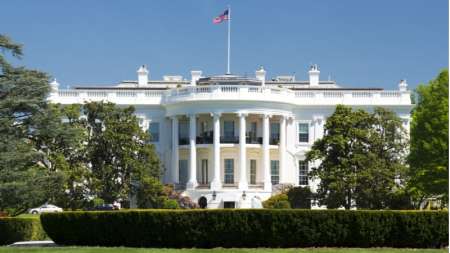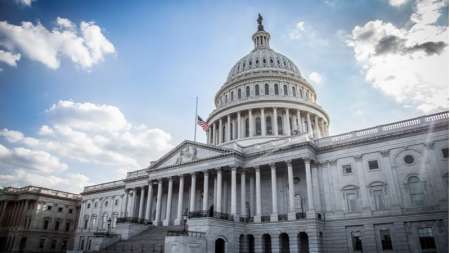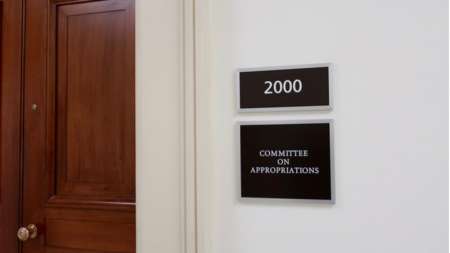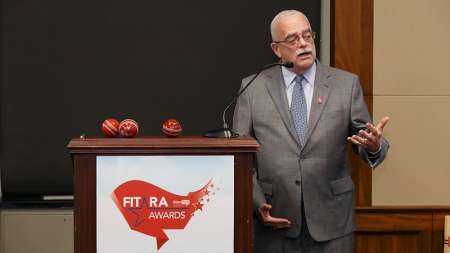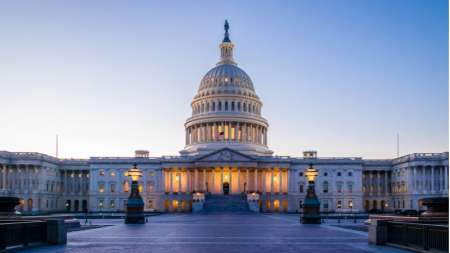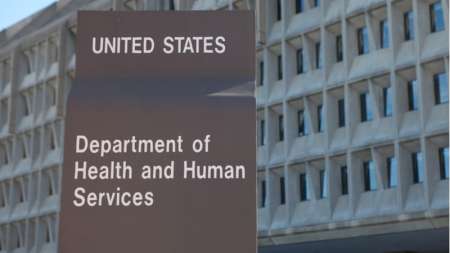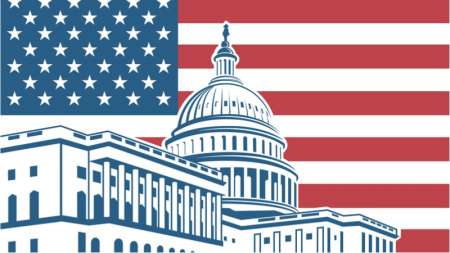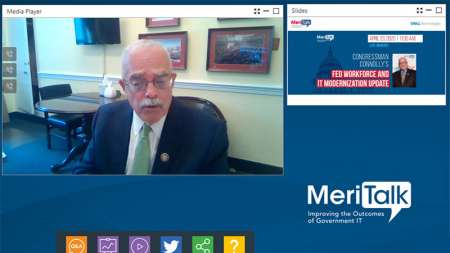Rep. Gerry Connolly, D-Va., said today that the $1 billion funding increase for the Technology Modernization Fund (TMF) included in the slimmed down HEROES Act pandemic relief legislation is probably not big enough to spur Federal agencies to undertake widespread IT modernization, but agreed that winning approval for the huge funding increase would be a good first step. […]
President Trump today signed a continuing budget resolution that will fund Federal government operations at Fiscal Year 2020 spending levels through Dec. 11. The President’s approval of funding legislation passed by the House Sept. 22 and the Senate Sept. 30 narrowly averted a government shutdown following the end of FY2020 yesterday. […]
With no U.S.-based companies dominating the worldwide market for network equipment that underlies 5G wireless services, and with the U.S. in the midst of a years-long campaign to ban Chinese network equipment makers from U.S. and allies’ markets, perhaps the most important battle for the longer-term future of 5G network infrastructure is gearing up now in and near the halls of power in Washington, D.C. […]
As crunch time approaches in Congress on a new round of pandemic relief legislation, a group of Democratic lawmakers including leaders of the House Oversight and Reform Committee urged House leadership in a July 24 letter to include in any bill at least $1 billion of additional funding for the Technology Modernization Fund (TMF). […]
The House Appropriations Committee this week approved its defense funding bill for fiscal year 2021 on a vote of 30 to 22. The bill includes $694.6 billion in new discretionary spending authority for the Department of Defense, and a slight decrease in funding for research, development, test, and evaluation of new technologies. […]
The FY2021 Financial Services and General Government (FSGG) appropriations bill approved by the House Appropriations Committee on July 15 asks the Department of Health and Human Services (HHS), among other government agencies, to cooperate on a report to Congress that explains limitations to integrating and modernizing Federal health and human services-related IT. […]
Proposed Fiscal Year 2021 funding for the Technology Modernization Fund (TMF) remains stuck at $25 million as the full House Appropriations Committee voted today to approve the FY 2021 Financial Services and General Government (FSGG) appropriations bill that covers a host of executive branch organizations including the Office of Management and Budget (OMB) and the Office of Personnel Management (OPM). […]
House Government Operations Subcommittee Chairman Rep. Gerry Connolly, D-Va., is helping to lead the charge for a 3 percent Federal pay raise in Fiscal Year 2021 budget legislation. […]
The House Appropriations Committee released its draft of the fiscal year 2021 Legislative Branch funding bill which appropriates $4.198 billion total to fund Legislative Branch departments such as the U.S. House of Representatives, Congressional Budget Office, and Capitol Police. The appropriated funding will be $207 million more than the FY2020 enacted level and doesn’t include […]
The House Appropriations Committee voted to approve $196.5 billion in funding in a fiscal year 2021 appropriations bill covering the Departments of Labor, Health and Human Services, Education, and Related Agencies (LHHS), which also includes the Social Security Administration. […]
The House Appropriations Committee released a draft of the State, Foreign Operations, and Related Programs funding bill for Fiscal Year 2021, which includes $65.87 billion in funding, maintains funding for the World Health Organization (WHO), and is substantially above the president’s budget request. […]
The House Appropriations Subcommittee on Commerce, Justice, Science (CJS), and Related Agencies approved by voice vote a $71.4 billion funding bill for fiscal year 2021. […]
The House Appropriations Committee’s Financial Services and General Government (FSGG) Subcommittee approved by voice vote today legislation that would provide $24.6 billion of funding for a variety of Federal agencies and programs for Fiscal Year 2021. […]
The House Appropriations Committee released a draft of the defense funding bill for Fiscal Year 2021, which includes $694.6 billion in new discretionary spending authority for the Department of Defense, and a slight decrease in funding for the research, development, test, and evaluation of new technologies. […]
If the Technology Modernization Fund (TMF) is going to see a big boost in funding anytime soon, it may not arrive through the regular annual appropriations process. […]
The House Appropriations Subcommittee on Military Construction, Veterans Affairs, and Related Agencies approved its Fiscal Year 2021 funding legislation for the Department of Veterans Affairs (VA) by voice vote today. The bill features a 12.4 percent increase in IT modernization funding for the agency. […]
After acknowledging that Democratic and Republican members of the subcommittee have different viewpoints on funding immigration-related agencies, the House Appropriations Subcommittee on Homeland Security approved Fiscal Year 2021 funding legislation for the Department of Homeland Security (DHS) by voice vote today. […]
The House Appropriations Committee released draft Fiscal Year 2021 funding legislation for the Department of Homeland Security (DHS) today that proposes a modest 0.5 percent total funding increase for DHS, and a 10 percent budget boost for its Cybersecurity and Infrastructure Security Agency (CISA) component. […]
In draft Fiscal Year 2021 funding legislation for the Department of Energy (DOE) released today, the House Appropriations Committee increased cybersecurity funding and vowed to save the Advanced Research Projects Agency—Energy (ARPA-E). […]
A collection of trade groups representing the nation’s biggest tech firms is urging Senate leadership to match or exceed the $1 billion in funding for the Technology Modernization Fund (TMF) approved by the House last month as part of the HEROES Act pandemic-relief legislation. […]
The 2021 National Defense Authorization Act (NDAA) that cleared the Senate Armed Services Committee last week on a bipartisan vote of 25-2 includes the Spectrum Modernization Act, which would direct the National Telecommunications and Information Administration (NTIA) to evaluate a range of IT improvements that would improve Federal government spectrum management. […]
A group of House Energy and Commerce Committee members urged House appropriators In a June 10 letter to fund the Broadband Deployment Accuracy and Technological Availability Act (Broadband DATA Act). […]
The Cyberspace Solarium Commission has added two new recommendations to its wide-ranging cybersecurity policy report to address the challenge of disinformation on social media. […]
The Congressional Budget Office (CBO) said that H.R. 5428, the Grid Modernization Research and Development Act of 2019, would cost the United States $1.2 billion over the next five years if enacted. […]
With several primary elections taking place today and the general election less than six months away, the group tasked by Congress to make recommendations to improve the nation’s cyber defenses made several additional recommendations to secure the 2020 elections. […]
As states shift their voting processes and procedures due to the COVID-19 pandemic, another element of the process for states has been subject to change—Federal funding, an inconsistency that has caused local election officials to adapt on the fly. […]
To secure the United States’ place as a global tech leader, a bicameral, bipartisan group of legislators have introduced the Endless Frontier Act. […]
As Congress begins work on future COVID-19 relief bills, a group of bipartisan legislators wrote to House and Senate leadership urging them to include funding for state and local government (SLG) IT infrastructure in future relief bills. […]
The latest COVID-19 relief legislation being prepared by House Democrats – the HEROES Act – proposes $1 billion for the Technology Modernization Fund (TMF) to help Federal agencies improve their information technology systems. […]
Rep. Gerry Connolly, D-Va., today urged the Federal government to proceed with an abundance of caution with its nascent planning to return workers to their office locations amid the coronavirus pandemic, and offered some insider handicapping on the likelihood that Congress will act to provide more funding in the near term for Federal IT modernization. […]

